Reeling 29: The Chicago International Gay and Lesbian Film Festival offered plenty of great screenings of features and shorts. Here are a couple of reviews from the festival.
Our Gender Identities
Our Gender Identities, a short program consisting of six pieces, was one of the most fascinating programs I saw at Reeling. Our Gender Identities included a mash up of both documentaries and fictional shorts, all focusing on transgender people. Unfortunately, the first piece, Francois Tessier’s The Crossing (France), was the least strong. While the story of a young woman who rides a leisure boat run by a lonely old man she likes makes sense at the end, it’s too hard to map out the character’s relationships. The best moment comes from the tension between the two leads, but there is too little interaction for The Crossing to have any memorable impact.
Luckily, Chase Ryan Joynt’s Everyday to Stay regained the momentum Our Gender Identities lost with its first piece. Everyday to Stay focuses on two couples in which one person in the couple has transitioned from female to male and the strains it placed on their relationships. I was only able to follow Chase and Elizabeth’s story, as the other couple was only shown from the waist down, making their portion of the film hard to follow. Chase and Elizabeth, however, are a very beautiful and inspiring pair. Chase is still struggling from gender identity issues following his surgery, and Elizabeth is dedicated to helping him through his struggles. Everyday to Stay definitely gives a fully formed and personal glimpse into a life many people don’t understand.
Hector Ceballos’ Remember Me in Red followed, and while at first it seemed too over-the-top and theatrical, this non-documentary piece eventually won me over. It follows Fidelia, a woman who has just helped plan the funeral of her transgender friend Alma Flora. However, Alma Flora’s -- formerly Alejandro -- parents cannot except their child’s identity and have her buried in a suit and tie. Fidelia is destroyed by this, and her struggle to come up with a solution while coping with her close friend’s death is sadly realistic. The situation was unlike any others I’d seen at Reeling, and the ending definitely brought tears to some audience members’ eyes.
More on next page...
\\\
(continued)
I’m Just Anneke was the most hopeful short in the whole piece. This documentary told the story of Anneke, a 12-year-old girl who dresses like a boy, but isn’t sure whether or not she’s ready to transition or if it’s even necessary. Anneke is truly an inspiration with her upbeat, self-loving attitude, although the film does explain that it took a while for her to be comfortable with herself. Her family is also a truly beautiful to behold, showing her nothing but love and support throughout her growth. “My main concern is for Anneke to be happy,” her father says, creating a sound bite many parents could stand to hear. Anneke’s friends also had a brief moment in the film in which they explain that Anneke’s gender doesn’t matter to them- they like her regardless. I’m Just Anneke is such a refreshing, uplifting piece, and many can learn from what this film has to offer.
Daniel Trevino’s non-doc Amateur was another semi-confusing, disjointed short that only made sense to me after I did a bit of research. Amateur follows Michael, a young man who’s encounter with the gender-variant Sam leaves him both confused and pleasantly intrigued. Their relationship is well developed and the two actors (Nick Spain as Michael and Nikki Valdez as Sam) connect well, but my lack of knowledge on gender variance detracted from my viewing experience. Now that I’m clued in, I’d be happy to give Amateur another go!
Lastly, Ewan Duarte’s documentary Spiral Transition isn’t frilly or extravagant, but it made a pleasant, uplifting ending to Our Gender Identities. Ewan Duarte, it turns out, was formerly Rachel Duarte, and Spiral Transition focuses on the Rachel trying to get her reluctant mother’s blessing before starting hormones. It is difficult to watch Ewan’s mother talk about the “death” of her daughter, but the resolution is satisfying and proves that there can be a happy ending at the end of a difficult journey. Our Gender Identities may be uneven in the quality and value of its pieces, but overall it is a truly unique piece of cinema that is both educational and entertaining.
More on next page...
\\\
(continued)
Holding Hands
Tonette Stanford and Katherine Wilkinson’s documentary Holding Hands is shocking, graphic, uncomfortable, and uplifting -- not to mention one of the best movies I saw at Reeling. Holding Hands recounts the horrifyingly violent and homophobic attack on Craig Gee and Shane Brennen on Oxford Street in Sydney, Australia that occurred simply because the two men were holding hands in public. The police force failed to take any sort of immediate action, and the partners were left to cope with the trauma -- which included facial reconstruction surgery for the nearly-mortally wounded Craig -- alone. The police continue to ignore their pleas for help and, according to Craig, claim that the force will only look into a case like this if there is a death. Following this news, Craig and Shane go public with their story, and Craig’s beaten face even ends up on the cover of a prominent Australian newspaper. This kicks off a movement to destroy homophobia in the police force, and Craig and Shane ultimately become leaders in this new revolution.
Unfortunately, their prominence comes with some devastating repercussions. Craig’s family cuts him off completely for “humiliating” them by outing himself in the paper. Craig’s ignored plea for his mother to come see him after his surgery is one of the hardest moments of the film, especially because this is one aspect that does not get better. Shane’s family never stops loving him, however, and even takes Craig in as a son. The road to recovery is a long one, and Craig ends up in a psychiatric facility after suffering from post traumatic stress disorder that leaves him suicidal and claiming that he doesn’t want to live in a world where such evil exists.
Holding Hands is surprisingly personal. It follows several different stages in Craig and Shane’s life, from the attack to present day, and even includes personal videos the couple took themselves. This detailed of a look at their lives makes the film even more relatable to the audience, and by the end, it feels like Craig and Shane are good friends. It is often hard to watch the stumbles and falls the two go through on their way to a normal life, but every part of Holding Hands seems fitting and necessary. I recommend keeping an eye out for this one and getting a hold of it as soon as possible.
Across Lesbian Borders
Across Lesbian Borders, a four piece short program, was a bit too strange for my personal taste, and also wins the award for the most uncomfortable short undoubtedly the whole festival had to offer. The first short, Carlos Prado Pamin’s Vellas (Spain) was a cute little film about two older woman in love. There is hardly any dialogue in the film, but the two leads don’t need words to form a special connection. The surprise ending is the best part of a piece that knows exactly what it should be and does a fantastic job of achieving its goal.
More on next page...
\\\
(continued)
Rodrigo Diaz Daiaz’s After Lunch (Brazil) takes a bit longer to get to the point, but once it gets there, it goes all the way. Two women, Nana and Andreia, share their dreams to each other while their husbands watch football in the other room, and my oh my does Nana’s dream get steamy. In fact, After Lunch offers one of the most sexual sequences I encountered at Reeling. The two leads (Lulu Pavarin and the Debra Messingish Gilda Nomacce) are spot on as bickering housewives, and their moments together have the proper chemistry to make their interactions believable. There was nothing particularly special about After Lunch, but it did make for a neat and tidy little piece of entertainment. Here is the "making of" video:
I can’t say the same for Na’ama Landua’s Hyacinthus Lullaby (Israel), a film that made me so uncomfortable I literally couldn’t look at the screen. Hyacinthus Lullaby tells the story of a lonely young woman who uses her bitchy mother’s death as a chance to smooth over their rocky relationship with some postmortem bonding time. I’m not sure why Landua thought anyone in the world would want to watch this woman drag her dead naked mother out of a bath tub for several minutes, but it’s a terrible idea. At the end, the woman behind me said to her companion, “I don’t know how that’s a lesbian film”, and I 100% agree. Hyacinthus Lullaby is simply an exceedingly uncomfortably piece that I wish I hadn’t seen, and wouldn’t wish on any of you either.
Petra Clever’s Lady Pochoir (Germany) luckily makes up for the previous film with a fun story and perky, engaging actors. Yv (Nadine Rennack) is a delivery girl by day, and Lady Pochoir, a famous graffiti artist, by night. Yv’s struggle isn’t only in trying to avoid the police as she defaces public property, however- her best Paul is also determined to find her a new girlfriend. It’s a bit of a random premise, but the urban, almost superhero-y tones are original and entertaining. Rennack is adorable as the Yv, and the unexpected ending serves as a treat to the audience. Across Lesbian Borders may not have been my favorite program -- I tend to demote works that in some way scar me for life -- but it did offer up some very worthwhile moments that concluded my Reeling 29 experience on a positive note.
Be SheWired's Friend on MySpace!














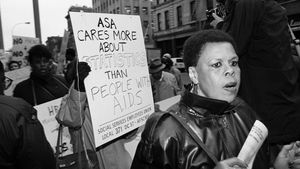


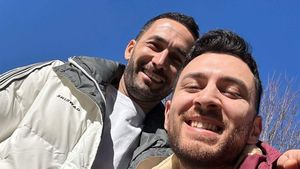
















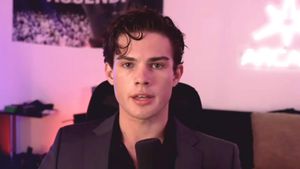
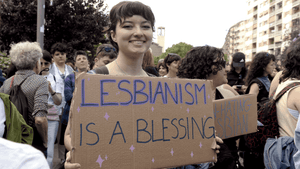












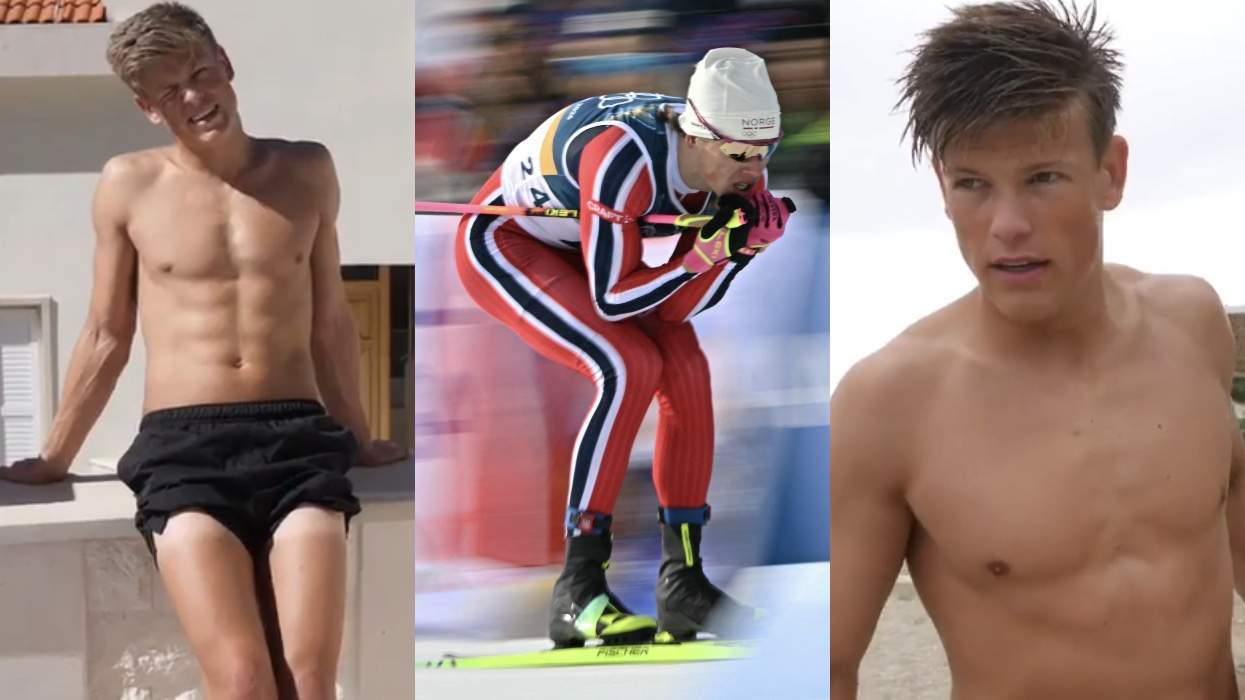



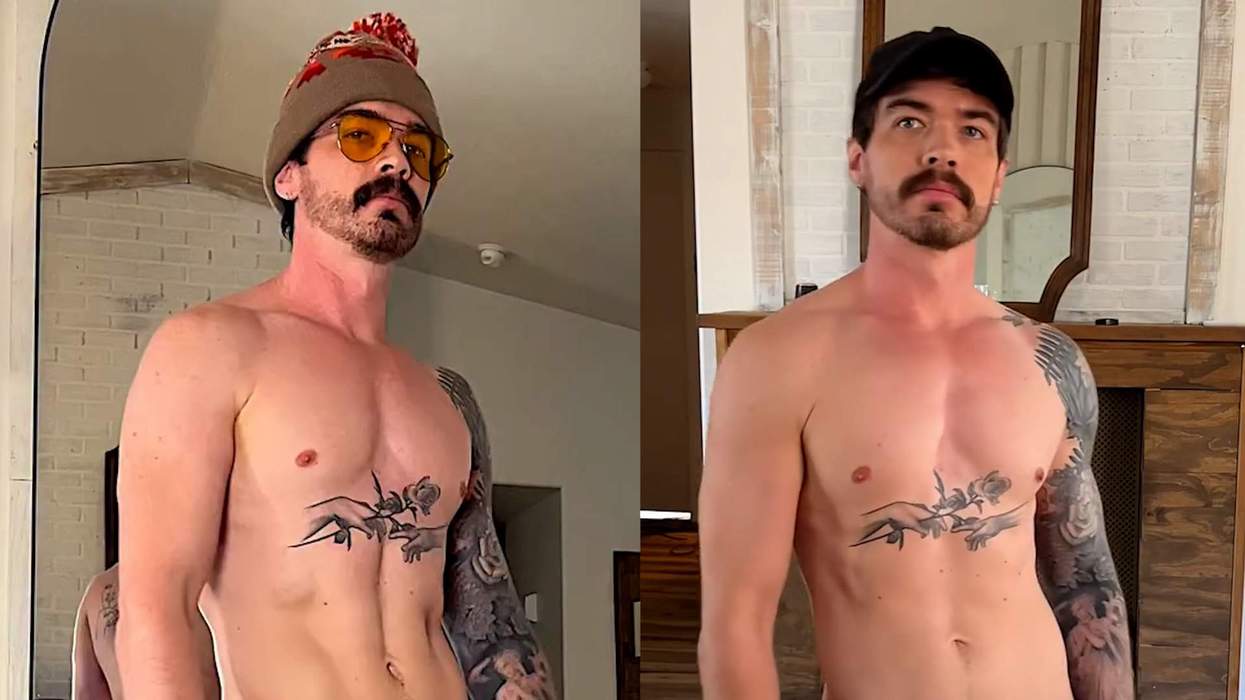
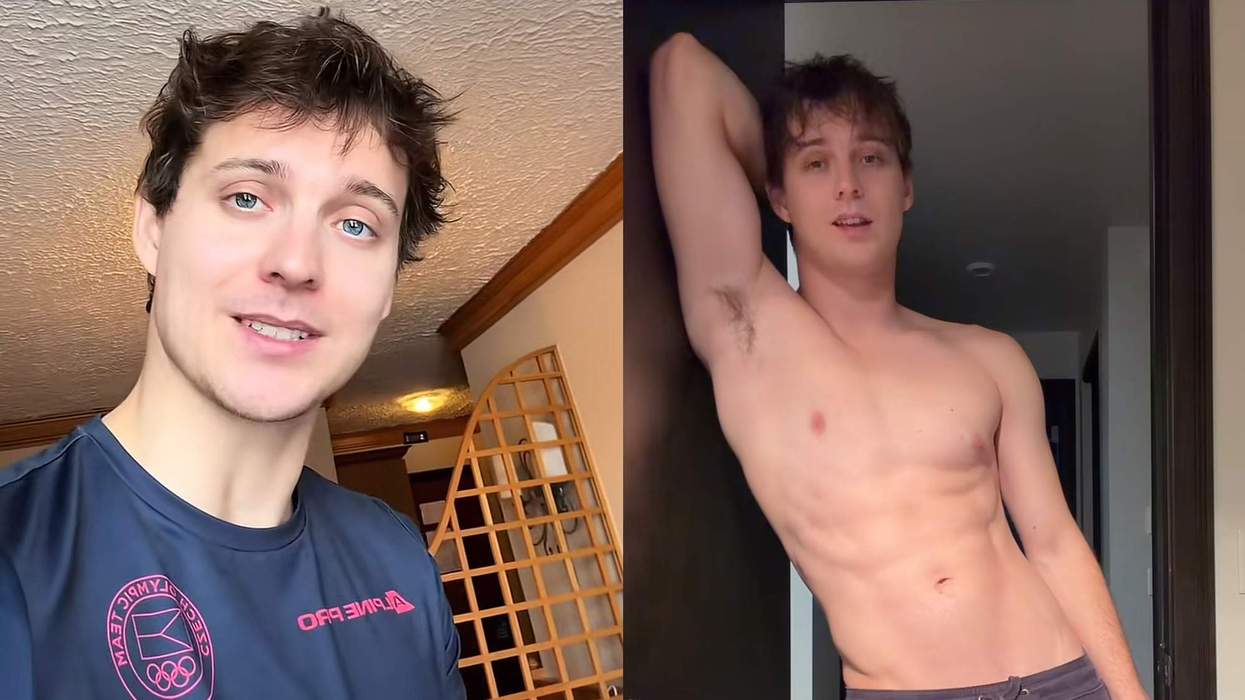
































 Cindy Ord/Getty Images
Cindy Ord/Getty Images























